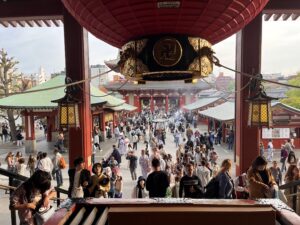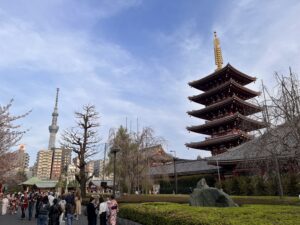
Bustling and Unreached
Recently, our Asia-Pacific Leadership Team met for strategy meetings in Tokyo, Japan. I wanted our team to have exposure to this massive city of over 37 million people – in fact, it’s the largest city in the world. And, it’s also one of the least reached cities in the world.
 In Japan, I was struck by how advanced the culture was in a number of ways – crime is extremely low, all the systems work, everything is neatly arranged and aesthetically appealing. While we may not vocalize the thought, many of us are accustomed to thinking of missions as something people from more advanced countries do in less advanced countries.
In Japan, I was struck by how advanced the culture was in a number of ways – crime is extremely low, all the systems work, everything is neatly arranged and aesthetically appealing. While we may not vocalize the thought, many of us are accustomed to thinking of missions as something people from more advanced countries do in less advanced countries.
Perhaps this exposes a gap in our understanding of Scripture and the ways of God. There was a period in the early 20th century when many mission leaders thought in terms of “Christian lands” (or “Christendom”) and “non-Christian lands.” The Christian lands of Europe and the United States had been blessed with superior science and government, and they had a duty to export those tools and Christianize the rest of the world, thus bringing the world to utopia…or so they thought.
It wasn’t long until the so-called superior “Christian lands” were engaged in two of the bloodiest wars of all times, leaving tens of millions dead and millions more injured. What can we learn from all this?
We don’t send missionaries because we’re better than, richer than, or smarter than – we send missionaries as witnesses of the hope we have found in Jesus Christ.
The first missionaries were uneducated workers in a backwater part of the Roman Empire – far from the centers of power. Yet because they had seen the risen Christ and experienced the infilling of the Holy Spirit – they obeyed Christ’s command and went. Within the first century, churches were established across Europe, the Middle East, Africa and parts of Asia – including a church in Rome itself.

What else have we learned? We need to stop thinking in terms of Christian nations and non-Christian nations. In the past, missionaries were sent “from the West to the Rest.” Today, missionaries are sent “from everywhere to everywhere.”
So how would a rich country like Japan be different if more people knew Jesus? Today if you ride one of the amazing trains in Tokyo, you will notice that the ends of the platforms are lit with blue light. Suicide by train is an issue in Japan, so the blue lights are designed to calm people down and discourage them from jumping. Sometimes we need to be reminded that material prosperity does not bring lasting peace. What could happen if more people knew the Heavenly Father who loved them, the Savior who died for them, the Holy Spirit who fills them? For this reason, we go.
